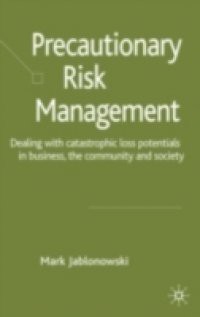High-stakes, catastrophic, risk potentials are by their very nature terminal and irreversible: We don't get a second-chance. Suggestions that we treat these risks as we do the "statistical" risks we face, using simple cost/ benefit analyses based on averages, just don't make sense. The problem with catastrophe is that, in the long run, there may be no long run. The only sensible approaches to catastrophic risks remain precautionary avoidance, and fatalistic acceptance ("why worry?"). Precautionary avoidance brings with it its own set of issues. How do we make progress, without exposing ourselves to precautionary dilemmas ("doomed if we do, doomed if we don't")? We suggest here that avoidance of precautionary dilemmas, via alternatives assessment and other strategies, should be the driving force behind risk-based science. To the extent some degree of fatalism may be inescapable, suggestions are offered for basing this response on reasoned acceptance rather than mere acquiescence.

